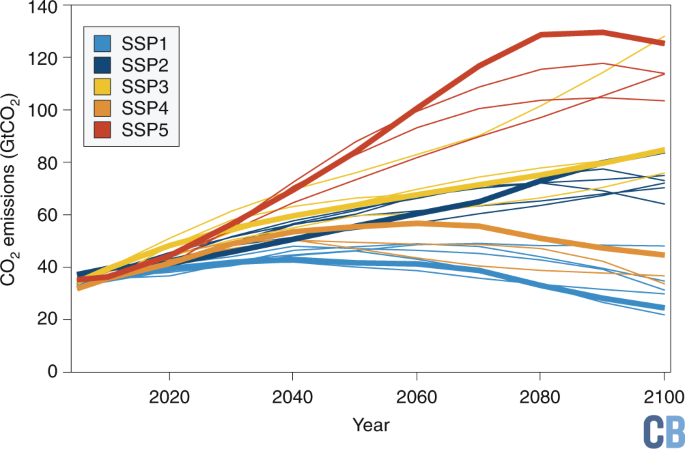
Forests in England declined for many centuries up until the late 19th century.
Then deforestation came to an end and was actually reversed: the forested area has doubled since then.
From @_HannahRitchie’s work on forests and deforestation ourworldindata.org/forests-and-de…
Then deforestation came to an end and was actually reversed: the forested area has doubled since then.
From @_HannahRitchie’s work on forests and deforestation ourworldindata.org/forests-and-de…

Many are asking good questions, so I'll write a short thread.
If you want to know more then follow Hannah (@_HannahRitchie), she has a lot of work coming out on forest transitions.
If you want to know more then follow Hannah (@_HannahRitchie), she has a lot of work coming out on forest transitions.
The tweet-sized summary is that humans – throughout history and today – cut down forests for two big reasons:
Because they need the trees themselves or because they find the forested land to be more valuable when it is not forested.
Because they need the trees themselves or because they find the forested land to be more valuable when it is not forested.
We might have an interest in the trees for many reasons – to construct houses or ships, as a resource to be turned into paper, or most importantly as a source of energy (where there are trees but no modern energy sources available, fuelwood is a major source of energy).
Second, an interest in the land.
The drive to cut down forests can be due to the interest to make space for settlements or mining, but by far the most important driver of the destruction of forests is to make space for agricultural land, fields and pastures to grow food.
The drive to cut down forests can be due to the interest to make space for settlements or mining, but by far the most important driver of the destruction of forests is to make space for agricultural land, fields and pastures to grow food.
When alternatives are available deforestation can end.
On the first point this can mean access to modern energy sources.
On the second point it can mean more efficient use of land – a shift from meat-based diets to plants or a more intensive use of the agricultural land.
On the first point this can mean access to modern energy sources.
On the second point it can mean more efficient use of land – a shift from meat-based diets to plants or a more intensive use of the agricultural land.
England is not the only place that ended deforestation a long time ago.
Here is the data for China and the US.
Here is the data for China and the US.

Globally however the world has not yet achieved the same.
Deforestation has slowed down a lot in recent decades, but it has not ended.
Here is @_HannahRitchie's post on global deforestation and how we might bring it to an end in the years ahead.
ourworldindata.org/global-defores…
Deforestation has slowed down a lot in recent decades, but it has not ended.
Here is @_HannahRitchie's post on global deforestation and how we might bring it to an end in the years ahead.
ourworldindata.org/global-defores…
• • •
Missing some Tweet in this thread? You can try to
force a refresh









